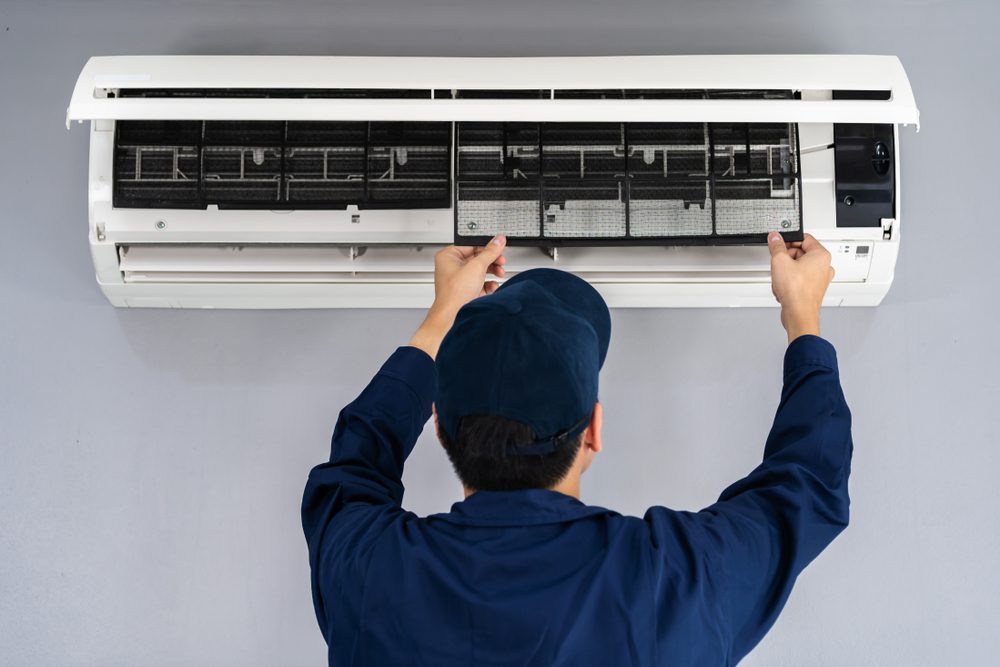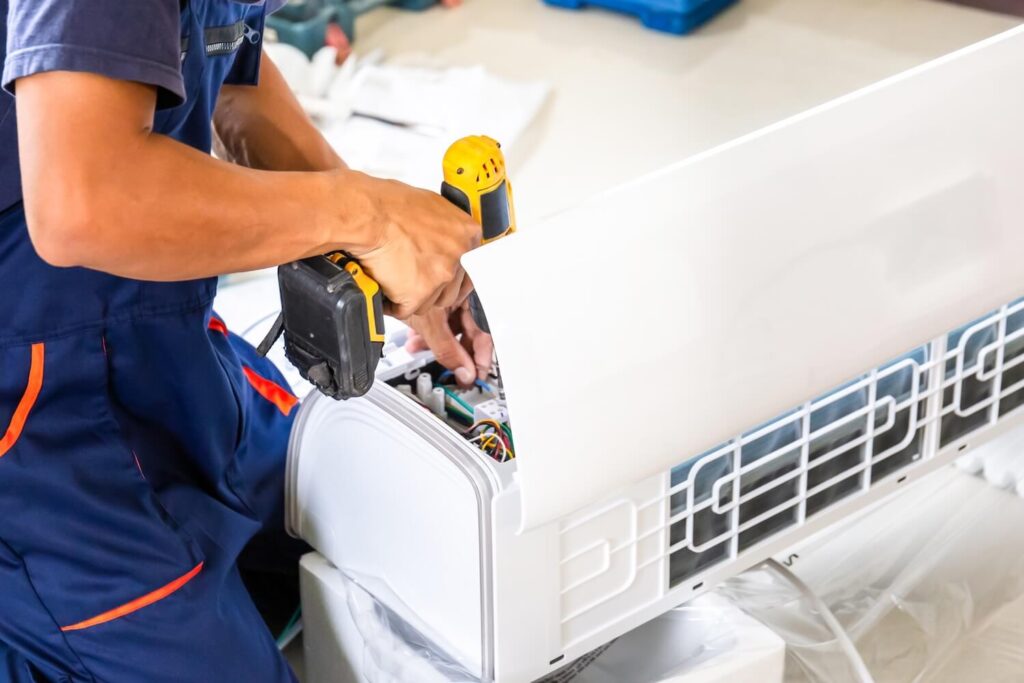Summer brings increased demands on any HVAC system, making preparation essential for maintaining comfort. Scheduling an HVAC inspection before summer prevents unexpected breakdowns and helps keep the system running efficiently when temperatures rise. This single step can catch small problems early, increase energy savings, and improve indoor air quality.
Neglecting a pre-summer HVAC inspection often leads to reduced performance, higher energy bills, and potential system failures at the hottest time of year. Routine maintenance not only prolongs a system’s lifespan but also ensures consistent cooling during peak months.
Taking preventive action saves money on repairs and supports health by reducing issues related to poor air quality. Homeowners who prioritize summer HVAC preparation can enjoy reliable comfort all season long.
HVAC Inspection Benefits Before Summer
Getting an HVAC inspection before summer can prevent system failures and reduce energy costs. Regular preventive checkups help ensure optimal performance, avoid expensive repairs, and maintain a comfortable indoor environment.
Boosting System Efficiency
Routine HVAC inspections improve system efficiency by ensuring all components—such as coils, filters, and fans—are clean and operating properly. Dirty or clogged parts force the system to work harder, which uses more energy and leads to higher utility bills.
Technicians check refrigerant levels, calibrate thermostats, and inspect ductwork for leaks during these visits. These steps help cool air move efficiently throughout the home and keep temperatures consistent.
Efficient systems not only lower electricity costs but also provide better humidity control. A well-maintained HVAC unit is less likely to overwork or cycle on and off unnecessarily, which benefits both comfort and energy savings during the hottest months.
| Efficiency Task | Benefit |
| Coil Cleaning | Reduces drag and boosts airflow |
| Filter Replacement | Improves indoor air quality |
| Duct Leak Identification | Prevents cooled air loss |
Reducing the Risk of Costly Repairs
A preventive HVAC checkup helps detect small issues—like worn belts, loose connections, or low refrigerant—before they escalate into major system failures. Catching these early often means a simple fix instead of a full replacement, which can save hundreds or even thousands of dollars.
Technicians look for abnormal noises, corrosion, and early signs of wear on parts that commonly fail during peak use. Addressing these issues before summer starts ensures the system is reliable when it’s needed most.
Scheduled inspections also help homeowners avoid last-minute emergency repairs, which often come with elevated costs and longer wait times during hot spells. By maintaining regular service, surprise breakdowns become much less likely.
Extending the Lifespan of Your HVAC System
Regular inspections support the longevity of HVAC equipment by keeping all parts in optimal working condition. Addressing minor wear and making adjustments as needed reduces strain on the compressor, blower motor, and other key components.
A well-maintained system faces less stress during periods of high demand, such as mid-summer heatwaves. This not only delays the need for a costly replacement but also allows manufacturers’ warranties to remain valid because servicing is documented and up to date.
Consistent care makes it more likely the system will perform reliably for 10 years or longer. Preventive HVAC checkups are a practical investment to maximize the useful life and consistent operation of any heating and cooling system.
What to Expect During an HVAC Inspection
During an HVAC inspection, a technician evaluates key parts of the system, checks for developing issues, and provides specific maintenance recommendations. This approach helps ensure the heating and cooling system performs reliably and efficiently through the summer.
Thorough Component Assessments
Technicians start by assessing the main parts of the HVAC system. They check the air filters, blower motor, evaporator and condenser coils, thermostat, ductwork, and electrical connections for dust buildup, damage, or faulty operation.
Routine inspection of refrigerant levels, drainage lines, and system controls is also performed. This ensures that the system is operating at its designed efficiency.
Identifying Potential Issues
Technicians are trained to look for warning signs that can develop into major problems. This may include detecting unusual noises from the blower, visible rust on coils, weak airflow from vents, water pooling around the unit, or loose wiring connections.
Early identification of these issues is crucial. Catching a clogged condensate drain or worn-out capacitor can prevent a total breakdown.
If problems are found, the inspector will document them clearly. Most companies provide a written report that lists any concerns along with photos or measurements. This helps the homeowner understand the urgency and potential costs involved.
Tailored Maintenance Recommendations
After the inspection, the technician will offer maintenance suggestions customized to the specific condition of the system. Recommendations can range from simple filter changes to more involved actions like duct sealing or coil cleaning.
They may suggest scheduling repairs promptly if malfunctioning parts are found. For systems with moderate wear, optimizing settings or updating thermostats may be recommended to improve efficiency.
A good inspection also provides seasonal advice. For example, before summer, the technician may recommend improving insulation or scheduling a tune-up to handle higher cooling demands. These customized tips help extend the life of the system and prevent unexpected failures.
Common HVAC Problems Prevented by Inspections
Routine HVAC inspections allow for early identification and correction of frequent system malfunctions. Addressing these issues promptly helps maintain system efficiency, lowers repair costs, and reduces the risk of sudden failures during high-demand periods.
Addressing Refrigerant Leaks
Refrigerant is vital for the cooling process in air conditioning systems. Leaks can result in insufficient cooling, increased energy consumption, and strain on the compressor.
An inspection can spot low refrigerant levels and locate potential leaks before they cause further damage.
A technician uses pressure gauges and leak detectors to check for proper refrigerant charge and ensure all lines are sealed. Fixing leaks not only restores optimal performance but also prevents prolonged exposure to chemicals that may harm indoor air quality.
Regular checks minimize the risk of compressor failure, which can be a costly repair if refrigerant loss is not addressed early.
Preventing Clogged Filters and Drain Lines
Filters serve as the first line of defense against dust, pollen, and debris entering the HVAC system. When filters become clogged, they restrict airflow, reduce energy efficiency, and may lead to overheating or frozen coils.
Drain lines remove condensation from the system. If these lines get blocked, moisture can back up and cause water damage or mold growth inside the unit or home.
During inspections, filters are checked and replaced if needed, while drain lines are cleared of blockages. This simple maintenance step improves both air quality and system longevity.
Cleaning and monitoring these components help prevent breakdowns during peak usage times, maintaining comfortable indoor temperatures.
Managing Thermostat and Electrical Issues
A malfunctioning thermostat can cause irregular cycling or prevent the HVAC system from running at all. Faulty electrical connections may result in system shutdowns, erratic operation, or even safety hazards such as electrical shorts.
Technicians inspect thermostat calibration, wiring, and safety controls during routine visits. They may also test relays, capacitors, and circuit boards for function and signs of wear.
Ensuring correct electrical operation helps maintain reliable climate control, reduces the risk of unexpected equipment failure, and improves overall system efficiency.
Regular electrical and thermostat checks are especially important before summer begins, when uninterrupted cooling becomes essential.
If minor issues are caught early, costly emergency repairs and inconvenient outages become much less likely.

How Service Air Eastern Shore Ensures Reliable Inspections
Service Air Eastern Shore delivers HVAC inspections designed to maximize system reliability and efficiency for area homeowners. Our approach is rooted in customer service, advanced technology, and a skilled local team.
Commitment to Customer Satisfaction
Service Air Eastern Shore prioritizes quality work and clear communication with every inspection visit. Technicians arrive promptly, treat each home with respect, and take the time to answer questions in straightforward language.
We encourage homeowners to describe strange noises, temperature inconsistencies, and any previous issues before the inspection begins. This transparency ensures that every relevant concern is addressed during the service call.
Feedback is collected after each job and used to improve procedures. Responsive scheduling and follow-up on past service issues help build long-term trust in the community.
Advanced Diagnostic Tools and Techniques
Our company uses modern diagnostic equipment to analyze both indoor and outdoor HVAC components. Digital gauges, thermal imaging, and airflow meters allow them to identify hidden efficiency losses and mechanical wear.
Inspection procedures include checking refrigerant levels, electrical connections, coil condition, and thermostat function. In coastal areas like the Eastern Shore, technicians specifically look for salt-induced corrosion and moisture buildup on outdoor units.
Routine data collection and thorough system checks help prevent small problems from developing into larger repairs. This proactive approach supports greater energy efficiency and can extend equipment lifespan.
Expert Team Serving the Eastern Shore
Technicians at Service Air Eastern Shore are trained, certified, and experienced in servicing both newer and older HVAC models common to the region.
Our team is familiar with unique climate challenges such as salt air and humidity, which accelerate corrosion and wear. Our expertise allows for accurate problem diagnosis and tailored maintenance recommendations.
Professionalism is reflected in clear communication, neat work, and honest advice. Customers can expect courtesy calls before arrival, transparent quotes, and help with routine maintenance between inspections.
Service Air Eastern Shore stands out by combining deep technical knowledge with a commitment to community safety and comfort.





